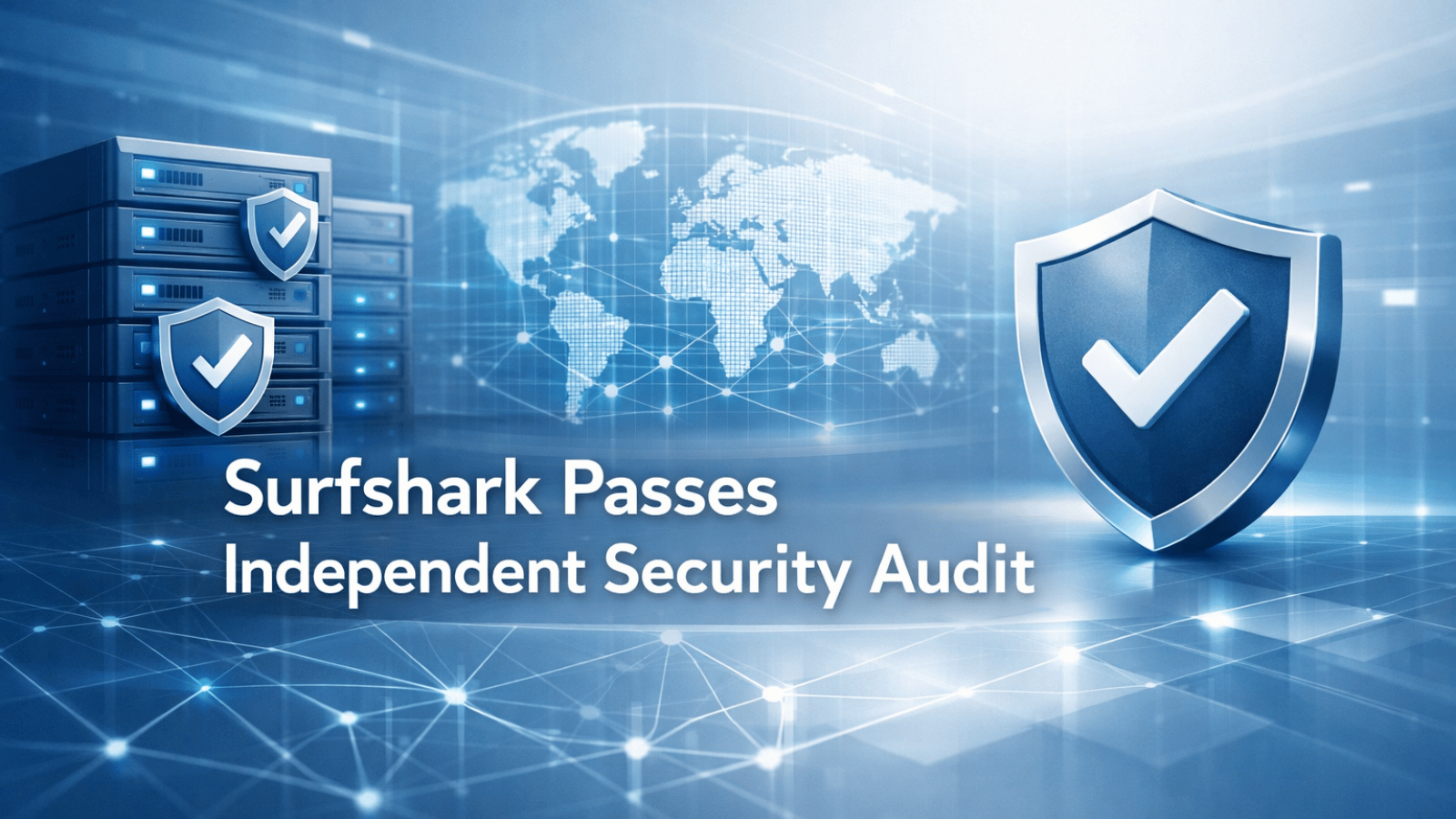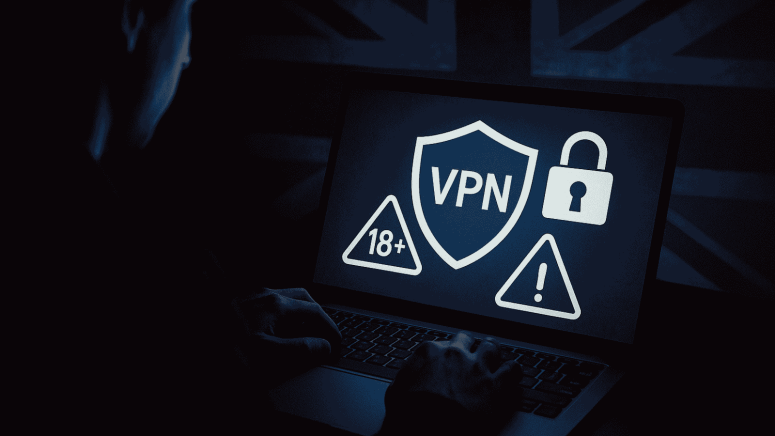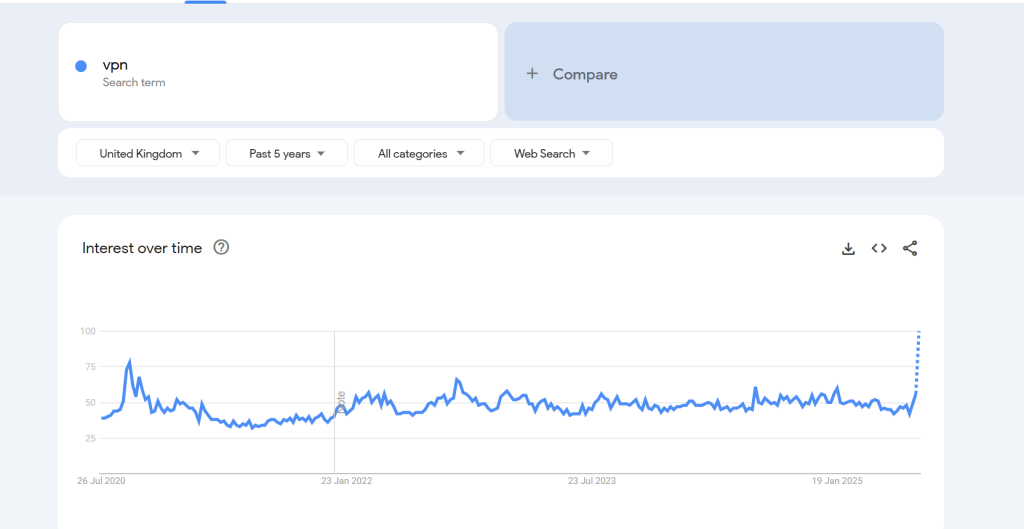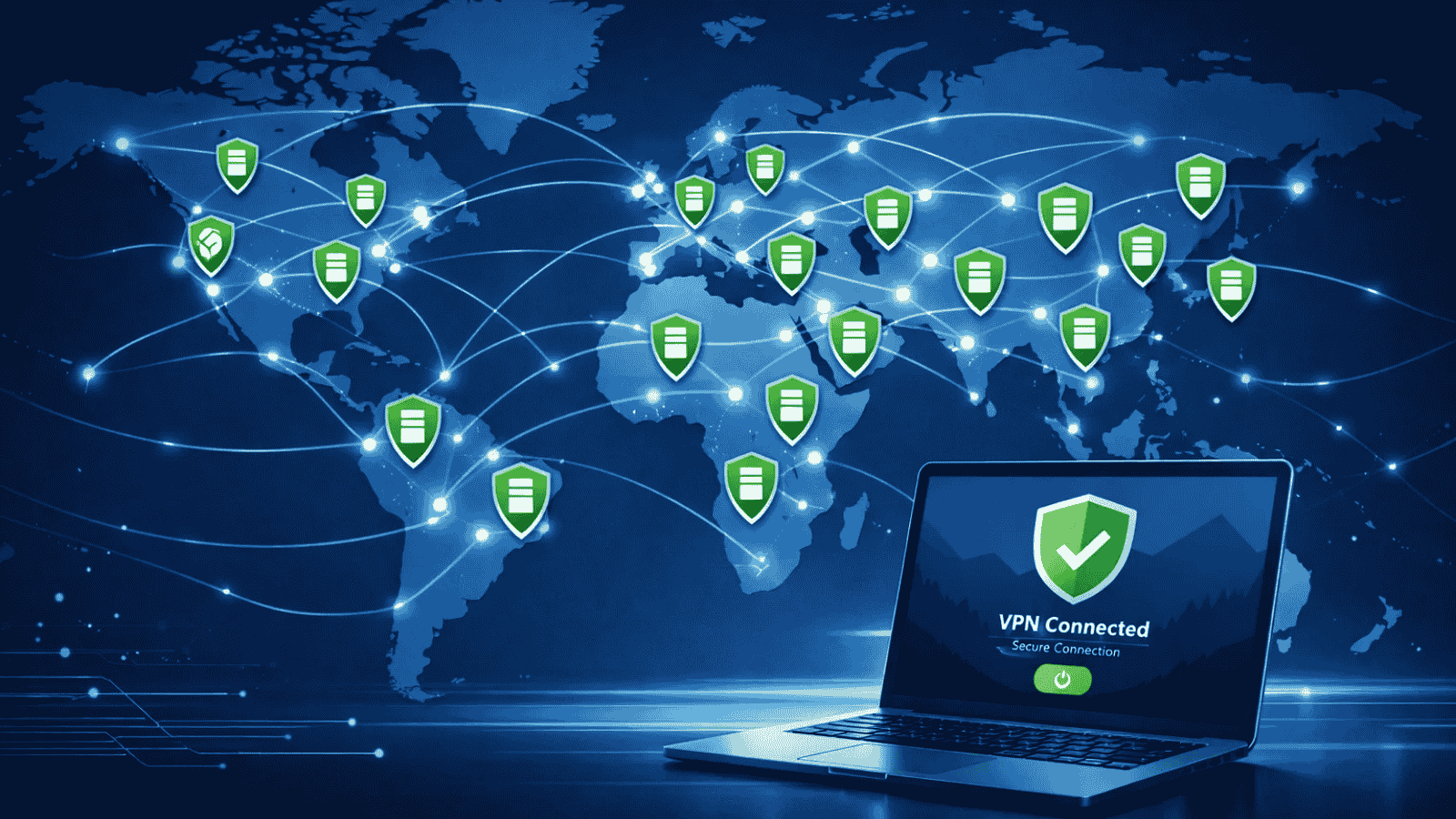
VPN Interest Spikes in the UK as Porn Site Age Checks Take Effect
- VPN Searches Surge: UK VPN searches spike 700% after porn sites require strict age verification checks.
- New Age-Check Rules: Under the Online Safety Act, adult sites now ask for ID, facial scan, or credit card.
- Privacy Concerns Raised: Critics warn of data risks, urge for device-level age checks to protect users.
The UK government’s new age verification requirements for adult websites have led to a massive surge in interest in VPN services, according to recent search data. The new rules, part of the Online Safety Act, mandate that adult platforms like PornHub, YouPorn, and RedTube verify that users are over 18 years old before granting access.
To comply, these websites must now request facial scans, photo ID, or credit card information from users to confirm their age.
VPN Searches Jump by Over 700%
In response to the new law, UK residents have turned to VPNs in large numbers. Data from Google Trends shows that searches for the term “VPN” soared by over 700% on Friday morning, immediately after the restrictions were enforced.
VPNs (Virtual Private Networks) are tools that allow users to change or hide their device’s location. By using a VPN, users can appear to be browsing from a different country, effectively bypassing local rules and filters.
Privacy Concerns and Criticism
The new verification rules have drawn sharp criticism from privacy advocates and legal experts. Aylo, the company behind PornHub and other major adult platforms, described the current approach as “haphazard and dangerous.”
Aylo argues that storing such sensitive personal data, like ID documents or facial scans, on websites creates unnecessary privacy risks for users. The company suggests an alternative: verifying age directly on a user’s device, without transmitting or storing personal information online.
Doubts About Effectiveness
Legal professionals and tech experts have also raised concerns about the policy’s overall effectiveness. Many argue that determined users can still access adult content through unregulated forums or even the dark web, where age checks are rarely enforced.
Critics say the law may do little to protect young users and instead push more people toward less secure corners of the internet.
Industry Seeks Better Solutions
Aylo has expressed willingness to collaborate with governments, civil society organizations, and technology companies to develop a more secure system. The company is calling for a device-based verification method that enforces age restrictions without compromising user privacy.
As the debate continues, the sharp rise in VPN usage highlights both the public’s resistance to the new measures and the ongoing tension between online safety and digital privacy.














